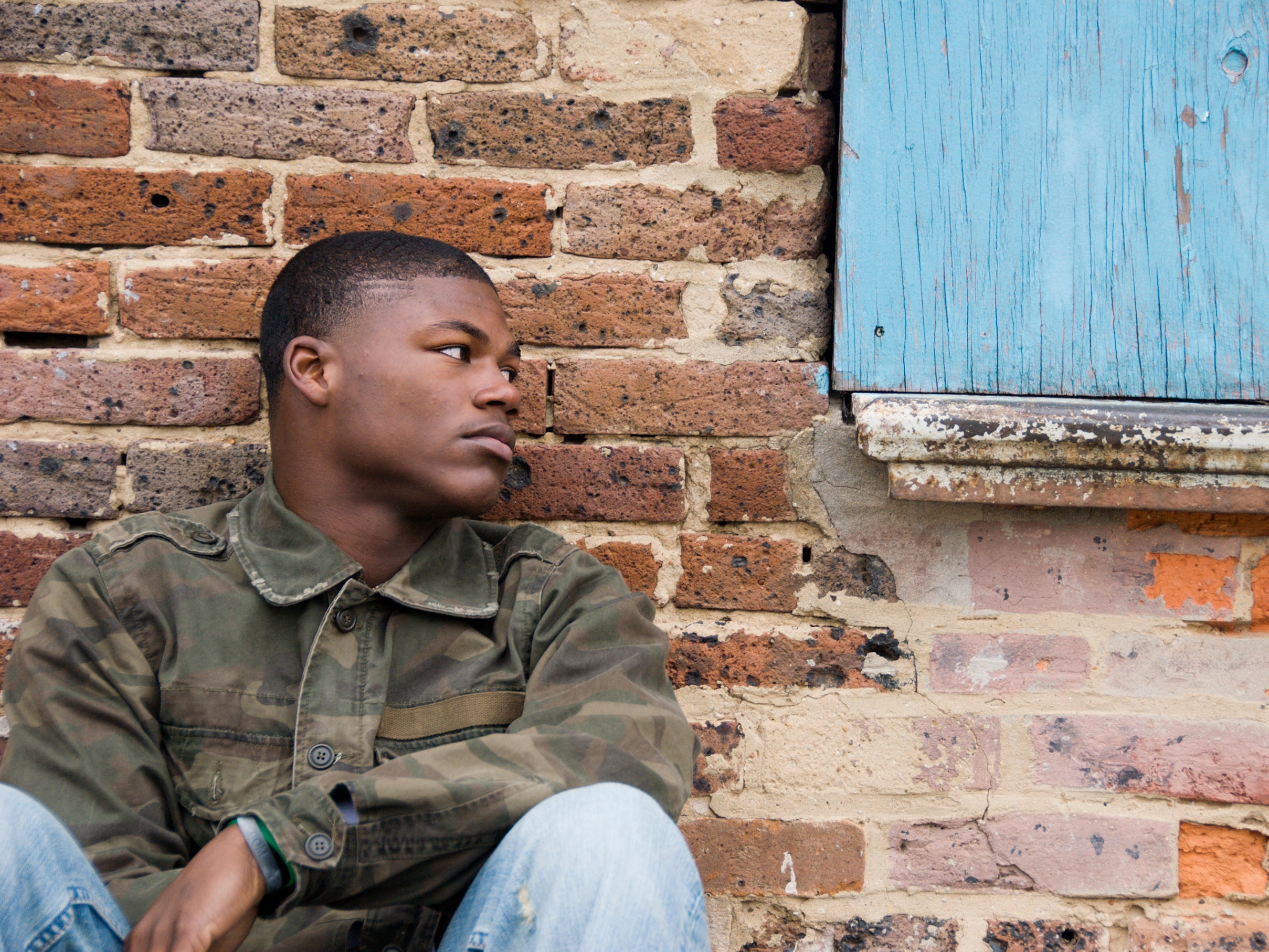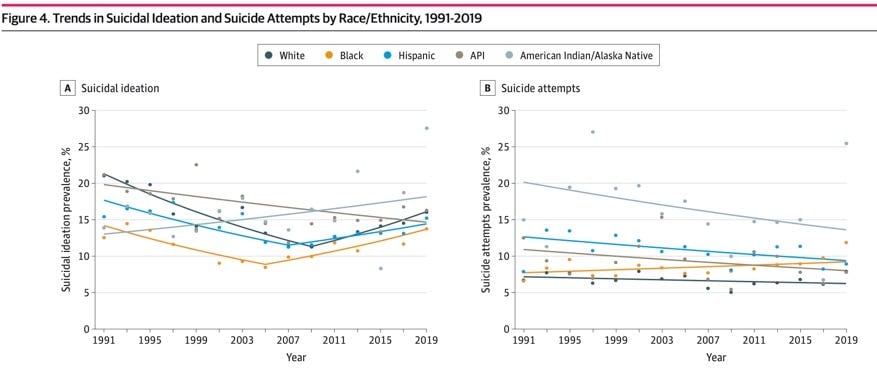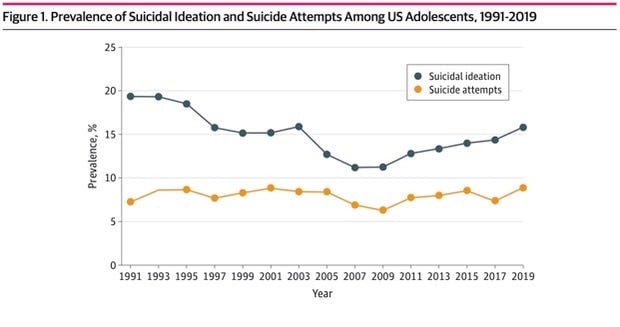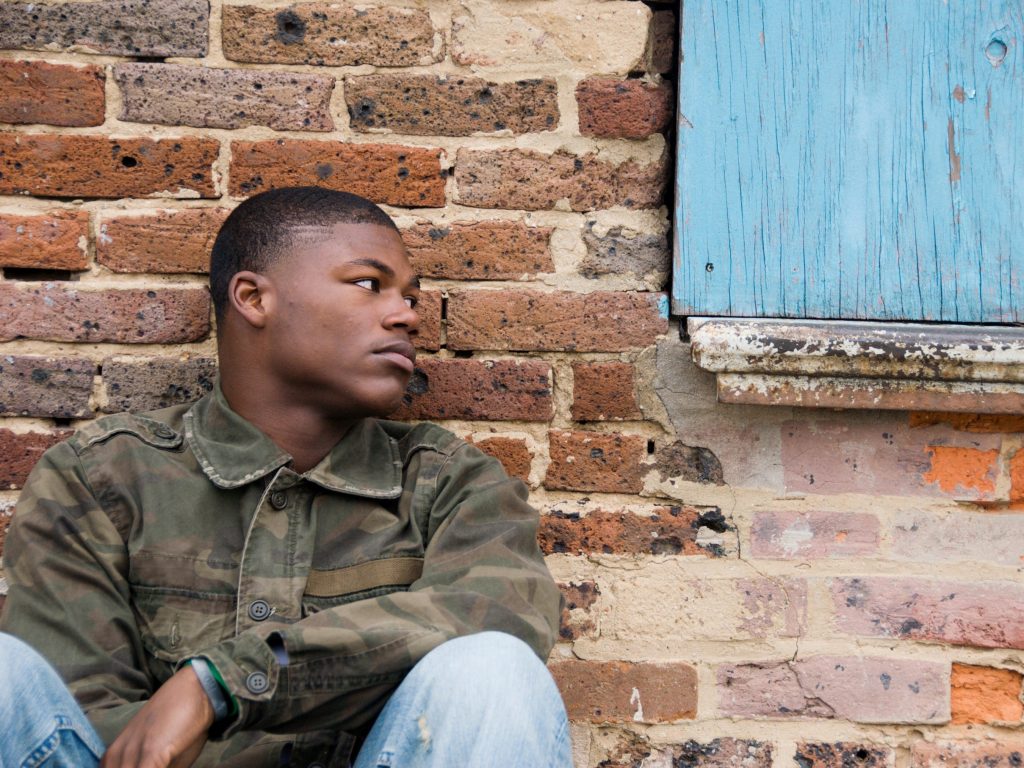
- New data show a nearly 80% increase in Black male adolescents attempting suicide since 1991.
- Suicide ideation has also increased, particularly for white, Black, and Hispanic women.
- Visit Insider's homepage for more stories.
While rates of suicide ideation and anxiety have risen sharply during the pandemic, a new study finds that suicide attempts, particularly among adolescents, have been rising at an alarming rate long before COVID-19.
The study, published Monday in the journal JAMA, found that teenagers attempting suicide increased 22% over the course of nearly three decades, but the trend varied depending on sex and race.
Black males had the highest increase in suicide attempts compared to any other race in the group, for example, increasing nearly 80%.
Other females groups had this upward trend, too. More white women attempted suicide from 2009-2019, for example. Suicide ideation has also increased for white, Black, and Hispanic women.
Researchers at Indiana and Purdue University surveyed 183,563 high school students from 1991 to 2019 in the US. The survey was given twice a year and asked three questions about suicide ideation, suicide plans, and suicide attempts.

Young Black men are treated as stronger and older, but don't have people to talk to about vulnerability
The study authors said young Black men face financial hardship, among other stressors, and may have untreated mental health needs.
"It's an awful perfect storm of a number of factors," Alfiee M. Breland-Noble, a psychologist and expert in suicide prevention, said about the reasons behind the upward trend.
Breland-Noble pointed to the fact that young Black men are discriminated against in school and can often be perceived as older than they are.
There is also a lack of Black therapists to speak to young Black men about the hardships they face. No matter how well-meaning a non-Black psychologist is, Breland-Noble said, they can't relate to the lived experiences of a young Black man.
"They don't understand the concepts that your family has to deal with, the day-to-day stressors. They don't understand racial trauma, they don't understand racism-induced stress," Breland-Noble said.

Suicide prevention programs need to take into account the systematic racism young Black men face
Breland-Noble told Insider she has been heartened to see famous men of color, like Wayne Brady and Charlamagne tha God, talking about their mental health problems, inspiring young Black men to open up.
"They're able to see people who look like them who have said 'Yeah, this is something I struggle with too.' That in a tiny way decreases the stigma in terms of the conversation," Breland-Noble said.
But both Breland-Noble and the authors of the JAMA study said it's not on young Black men, but on the medical community to meet them where they are.
"For males and Black youths in particular," the authors wrote, "growing risks, such as adverse childhood experiences, systematic racism, discrimination, neighborhood violence, and socioeconomic disparities" need to be addressed.
Breland-Noble agreed. "There's some really significant differences in terms of how communities approach mental health, approach suicide, and approach seeking mental health care."
If you or someone you know is struggling with depression or has had thoughts of harming themselves or taking their own life, get help. The National Suicide Prevention Lifeline (1-800-273-8255) provides 24/7, free, confidential support for people in distress, as well as best practices for professionals and resources to aid in prevention and crisis situations.
